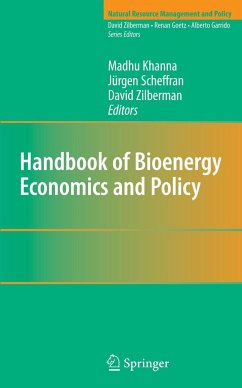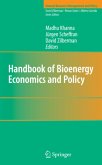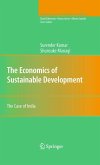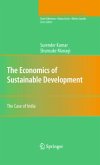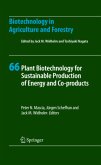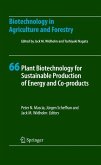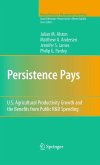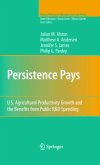Concerns about energy security, uncertainty about oil prices, declining oil reserves, and global climate change are fueling a shift towards bioenergy as a renewable alternative to fossil fuels. Public policies and private investments around the globe are aiming to increase local capacity to produce biofuels. A key constraint to the expansion of biofuel production is the limited amount of land available to meet the needs for fuel, feed, and food in the coming decades. Large-scale biofuel production raises concerns about food versus fuel tradeoffs, about demands for natural resources such as water, and about potential impacts on environmental quality.
The book is organized into five parts. The introductory part provides a context for the emerging economic and policy challenges related to bioenergy and the motivations for biofuels as an energy source. The second part of the handbook includes chapters that examine the implications of expanded production of first generationbiofuels for the allocation of land between food and fuel and for food/feed prices and trade in biofuels as well as the potential for technology improvements to mitigate the food vs. fuel competition for land. Chapters in the third part examine the infrastructural and logistical challenges posed by large scale biofuel production and the factors that will influence the location of biorefineries and the mix of feedstocks they use. The fourth part includes chapters that examine the environmental implications of biofuels, their implications for the design of policies and the unintended environmental consequences of existing biofuel policies. The final part presents economic analysis of the market, social welfare, and distributional effects of biofuel policies.
The book is organized into five parts. The introductory part provides a context for the emerging economic and policy challenges related to bioenergy and the motivations for biofuels as an energy source. The second part of the handbook includes chapters that examine the implications of expanded production of first generationbiofuels for the allocation of land between food and fuel and for food/feed prices and trade in biofuels as well as the potential for technology improvements to mitigate the food vs. fuel competition for land. Chapters in the third part examine the infrastructural and logistical challenges posed by large scale biofuel production and the factors that will influence the location of biorefineries and the mix of feedstocks they use. The fourth part includes chapters that examine the environmental implications of biofuels, their implications for the design of policies and the unintended environmental consequences of existing biofuel policies. The final part presents economic analysis of the market, social welfare, and distributional effects of biofuel policies.

